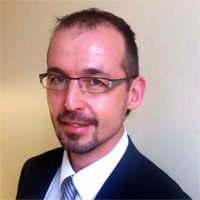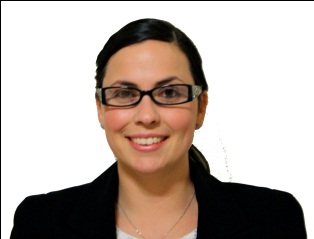Nickolai Titov New Dot Com Clinic Treating People with OCD Online Interview

Nickolai Titov New Dot Com Clinic Treating People with OCD Online Interview
Researchers at Macquarie University are developing an innovative approach to helping people with (OCD). The team at the eCentreClinic are exploring the use of internet-based treatments to provide people with OCD with a convenient, low-cost and effective alternative to face-to-face therapy.
OCD is an anxiety disorder that affects more than 500,000 Australians, however less than half of those with OCD receive evidence-based treatment. People with OCD often face barriers to treatment, such as the lack of access to trained mental health professionals and difficulties with the financial costs involved. There is also reluctance to seek treatment for symptoms because of the stigma and shame associated with the disorder.
Delivered over an 8-week period, this free clinical trial hopes to address these barriers by offering participants weekly contact with a Clinical Psychologist in the privacy and convenience of their home.
"We are conducting these trials in direct response to the results of a recent study into the acceptability of internet-based treatments for people with OCD" said eCentreClinic Director Dr Nickolai Titov.
"We found that ninety-eight percent of respondents indicated that they were open to trying treatment delivered online, with over half indicating the reduced cost and convenience would be an advantage", said Titov.
The Australian Institute of Health and Welfare showed the national annual spending on mental health services was $5.3 billion, in a report released last year. Alternative online treatments such as those being offered by the eCentre Clinic could help to substantially reduce this cost to both individuals and the government.
Since beginning research into the use of online education and treatment for mental health disorders in 2007, the team at the eCentreClinic, formerly from another university, have treated more than 1,600 Australian adults. Now with the addition of an online OCD treatment program the clinic is set to revolutionise the way people with this condition receive treatment.
To register interest in the program and find out more information, the eCentre website can be found at www.ecentreclinic.org
Interview with Nickolai Titov
Nickolai Titov, PhD, Director: eCentreClinic at the Centre for Emotional Health, Macquarie University. Question: What inspired you to look at an alternative treatment for Obsessive Compulsive Disorder (OCD) sufferers?
Question: What inspired you to look at an alternative treatment for Obsessive Compulsive Disorder (OCD) sufferers?
Nickolai Titov: OCD affects about 2% of the population, but people with OCD often have difficulty accessing services because of a lack of trained mental health professionals, geographical constraints, time constraints and stigma. We believe that access to evidence based specialised treatment should be available to everyone, and online treatments have enourmous potential. Bethany Wootton, a Clinical Psychologist experienced in working with adults with OCD approached me in 2009 to discuss whether we could build an online OCD Course, which she is now doing as part of her PhD.
Question: Why do you think the online treatment will appeal to those with OCD over the more traditional methods?
Nickolai Titov: Online treatment is very convenient, as people can logon 24/7 from any location which has a reliable internet connection. Moreover, treatment of OCD involves specialised training, which isn't available in many locations. Online treatments are also convenient for those whose symptoms make it difficult to leave the house to access and for those who feel stigma about their symptoms. Some people may prefer face-to-face treatments, while others may prefer online treatments - it is important that consumers have choice.
Question: It is often extremely hard for a patient to come to terms with the fact that they have OCD; do you think online treatment will help patients deal with the stigma associated with OCD?
Nickolai Titov: Treatment helps people understand their symptoms and also how to recover from those symptoms. This helps reduce stigma and improve self-confidence, which are both important for successful recovery. Many people who access our Courses say that the online access helped them to have enough confidence to access treatment.
Question: How much lower in cost is online treatment compared with face-to-face therapy?
Nickolai Titov: Treatment at the eCentreClinic is provided free of charge as we provide our treatments as part of research trials. But, our experience is that online treatment is at least 70% less expensive to offer than face-to-face treatment. There are also savings in indirect costs, including travel time, and time patients have to take off work to attend face-to-face treatment.
Question: Has the research, so far, shown that people want to receive therapy, online?
Nickolai Titov: Bethany and I conducted an online study of over 100 people with OCD symptoms in 2010 and 98% of respondents said they would use an Online treatment. In our first trial of the OCD Course 100% of respondents indicated that they felt the course was beneficial and would recommend the treatment to a friend with OCD suggesting that they felt online therapy was very acceptable. We have conducted similar surveys with people with PTSD wth similar results
Question: How is online therapy a legitimate alternative to face-to-face treatment?
Nickolai Titov: The eCentreClinic OCD Course contains all of the same treatment techniques that we use in face to face therapy. The participants in the OCD Course also have regular telephone support from a clinical psychologist who helps them apply the skills they learn through the program. In a study of people who have completed the course, 71% of participants no longer met criteria for OCD at the end of the program, and the results are similar to those seen in face to face treatment studies. We have obtained similar results in online treatment trials of courses for PTSD, depression, social phobia, panic disorder, and general anxiety.
Question: Is online therapy always appropriate for mental health therapy?
Nickolai Titov: Online therapy is not suitable for everyone. People with very severe levels of depression and those with severe suicidal thoughts require immediate and intense support which is easier to provide face-to-face. And, of course, consumers should be able to choose between a range of modalities of intervention including face-to-face, telephone, internet, and self-guided.
Question: How is OCD diagnosed?
Nickolai Titov: OCD is generally diagnosed during an interview with a psychologist, psychiatrist or general practitioner. When people apply to join an eCentreClinic OCD Course they receive a diagnostic interview via telephone, with a Bethany, a Clinical Psychologist experienced in treatment people with OCD.
Question: In what different types of ways does OCD affect more than half a million Australians each year?
Nickolai Titov: OCD presents in different ways in different people. But, the key symptoms are obsessions and compulsions. Obsessions are unwanted and repetitive thoughts, images or urges that make a person feel anxious, and that keep popping into the person's mind. Obsessions may include concerns about contamination, fears of being responsible for terrible events, symmetry and order, or violent and aggressive thoughts. Compulsions on the other hand are the things that people do to try to reduce the anxiety caused by obsessions. These may include behaviours like repetitive washing or cleaning, checking things again and again, ordering or arranging things, or mental compulsions including reviewing one's behaviour, counting or reassuring themselves that nothing bad has happened.
Question: Do you believe this program will revolutionise the way people with this condition receive treatment?
Nickolai Titov: Yes, in so far as it will lead to new treatment options for patients and clinicians. Online treatments should complement and strengthen existing services, to improve access to high quality treatment, which is also cost-effective.
Question: Will we see this type of treatment implemented across Australia as a preferred method of therapy?
Nickolai Titov: Online treatment will not replace face to face treatments, however it provides an important alternative for people who cannot or choose not to access other treatments. We expect online treatments for OCD to become available to the public within 24 months. But, people with OCD who are interested in helping us to develop the OCD Course are welcome to apply for our current trials (at www.ecentreclinic.org).
Interview by Brooke Hunter
MORE
- How to Conquer Bad Winter Health Habits
- Resident Evil: What Lies Outside'
- 1.5 million for 1.5 million Victorians...
- Be U Not a Bully Forum for Parents and Teens
- New Screening Test Recommended To Help Prevent...
- Vitamin D Mushrooms May Solve Health Dilemma
- Gemma Howorth World-First Solates Class Interview
- Federal Government Clarifies Carer Allowance...
- Fiona Clark Sleep Problems Linked to Bullying...
- Elective Surgery and Emergency Care on Increase
- Emotional Stress Proves to be a Pain in the Back
- CPSA applauds Choice IPL and Laser Regulation...
- Karen Kaye Complementary Medicines Are...
- Danielle Stowasser Pain Relief Interview
- Dr Weng Sam Type 2 Diabetes Medication Interview
- Blood Clots and Stroke Fourth Indicator
- An Unhealthy Mouth can lead to Heart Disease
- Sharing MS Diagnosis Key To Retaining Employment
- CanTeen Counselling Service
- Australia Leads The Way With HPV Vaccination Of...





